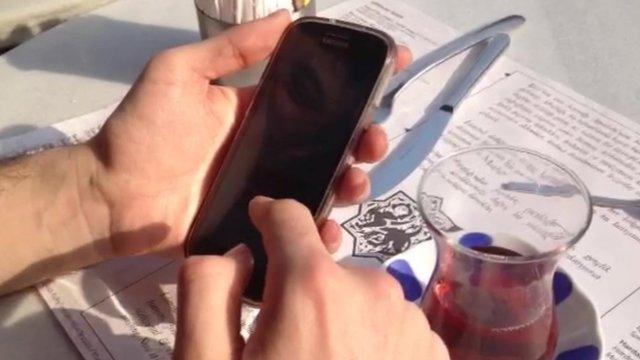Peker videos: Gang leader's claims rattle Turkish government
- Published
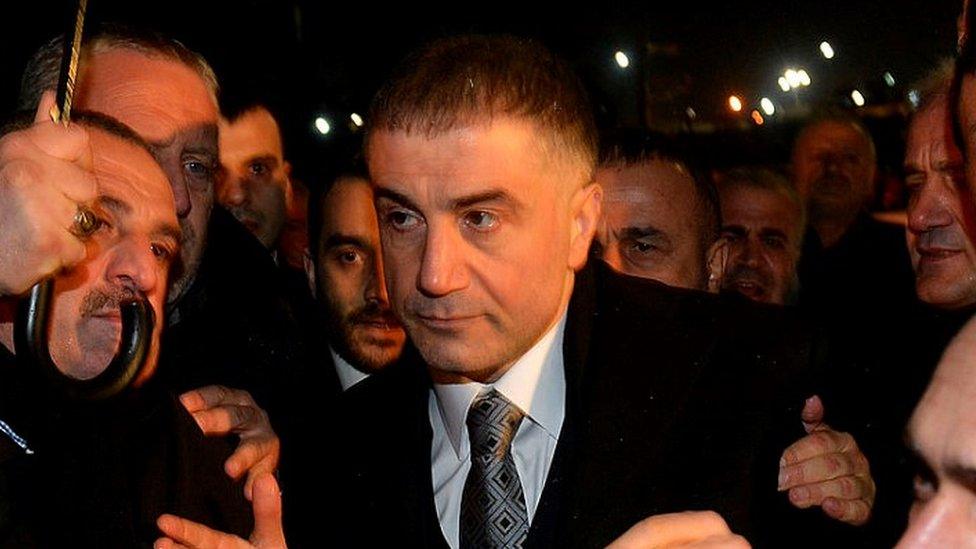
Sedat Peker (C) in 2014: He was jailed for various crimes in Turkey
The Turkish government has reacted furiously to corruption allegations made by a fugitive gang boss whose YouTube videos have been watched by millions of Turks.
The seventh video, broadcast by Sedat Peker on Sunday, has had more than 12 million page views.
Interior Minister Suleyman Soylu has called for an inquiry into his claims and for him to be charged with slander.
Peker, 49, says he is now in Dubai. He served several jail terms in Turkey.
He began posting the videos in early May after a police operation targeted him and his gang. He fled Turkey last year to avoid prosecution, and was previously jailed for fraud and running a criminal group.
'Targets the state'
According to Peker, Mr Soylu offered him protection and tipped him off last year, enabling him to flee Turkey before being arrested.
Mr Soylu, a close associate of President Recep Tayyip Erdogan, denied the claim and demanded that Peker return to face justice in Turkey. He said the videos were part of an "international operation".
"Even though the allegations and slanders are completely empty, it targets the state," Mr Soylu said.
Last week Mr Erdogan said his AK Party had brought peace to Turkey by combating gangs such as Peker's and would "foil this dirty script too", Reuters news agency reported.
On Sunday Turkish police detained Sedat Peker's brother Atilla in Mugla province, on the Aegean coast, after Sedat claimed he had sent Atilla to kill Turkish Cypriot journalist Kutlu Adali in 1996. Adali was shot dead in Cyprus, but his killers were never identified.
According to Sedat Peker, the hit on Adali had been ordered by ex-interior minister Mehmet Agar. He also alleged that Mr Agar was linked to the murder in 1993 of Ugur Mumcu, another prominent journalist.
Mumcu, an investigative journalist for Cumhuriyet daily, was killed by a car bomb.
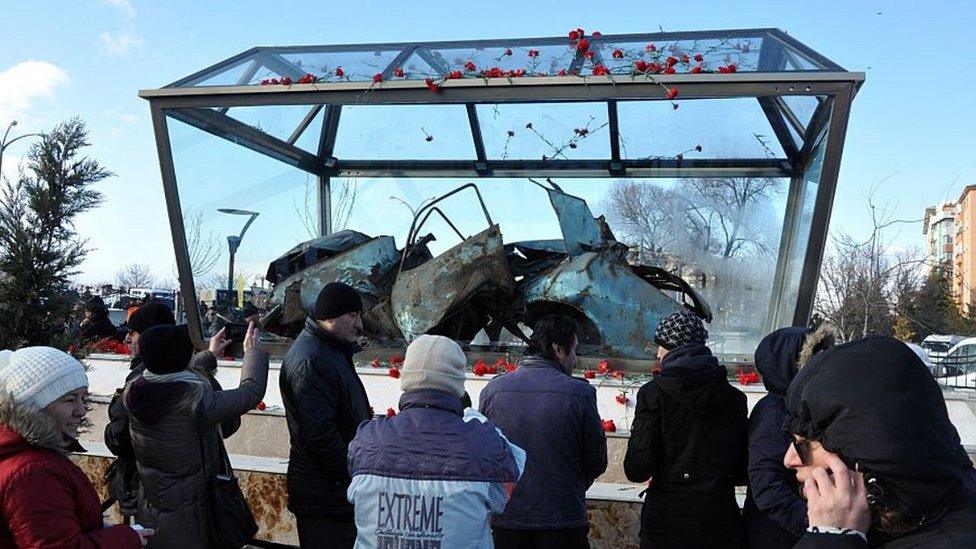
In 2016 a park named after Ugur Mumcu was opened in Eskisehir, with wreckage from the car bombing
The Turkish Journalists' Union demanded an investigation into both unsolved murders, in a tweet. "We demand that the suspects be put on trial. We call on prosecutors to do their duty," the union said.

Past crimes haunt Turkey now
By Mahmut Hamsici, BBC Turkish, Istanbul
"Are we returning to the 1990s?" Many are asking that question in Turkey now. That was an era of complex links between mafia gangs, police, politicians and business circles.
When the AK Party came to power at the beginning of the 2000s, it claimed that period was over. Mr Erdogan said there was now "a new Turkey" - the old Turkey was history.
But Sedat Peker's claims have challenged that narrative. He was an important figure in the 1990s.
In today's Turkey much of the mainstream media is seen as a mouthpiece of the government. The economy is suffering - hurt even more by the pandemic. So millions have turned to this mafia boss's YouTube channel.
Peker has triggered heated social media debate, reflecting Turkey's sharp political polarisation.
Interior Minister Soylu, one of Peker's main targets, seems to be in a difficult position, with some AK Party colleagues hesitating to support him openly.
Some believe that if Mr Erdogan wants to convince his electoral base, he has to say more - otherwise these allegations may damage his party's support.

The gang boss linked Mr Agar to a shadowy "deep state" - a term often used to describe alleged secret connections between politicians, security forces and organised crime in Turkey. Mr Agar has not yet commented on the allegations. His son Tolga is an MP in Mr Erdogan's ruling AK Party.
In Sunday's video Sedat Peker also alleged that the son of ex-prime minister Binali Yildirim had links to drug traffickers and had gone to Venezuela early this year on drugs business.
Binali Yildirim called the allegation "slander" and "the biggest insult". His son had gone to Venezuela to distribute Covid-19 test kits and protection, he said. Binali Yildirim was PM in 2016-2018 under President Erdogan.
The Turkish news website Ahval says Turkish lawyers have urged an official investigation, external into Peker's allegations.
WATCH how Turks got round social media bans in 2014:
The social media prohibitions were widely criticised and ridiculed by Turks
- Published24 March
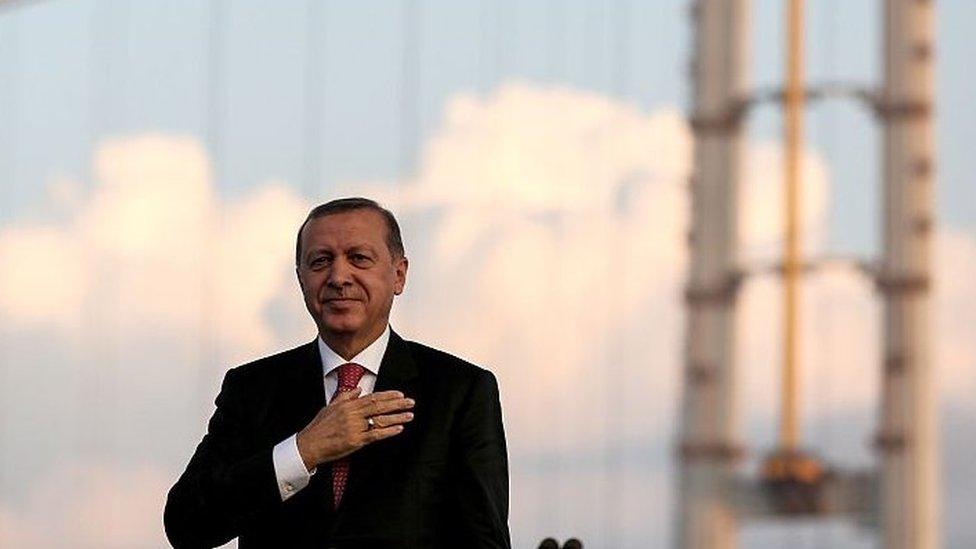
- Published5 April 2021
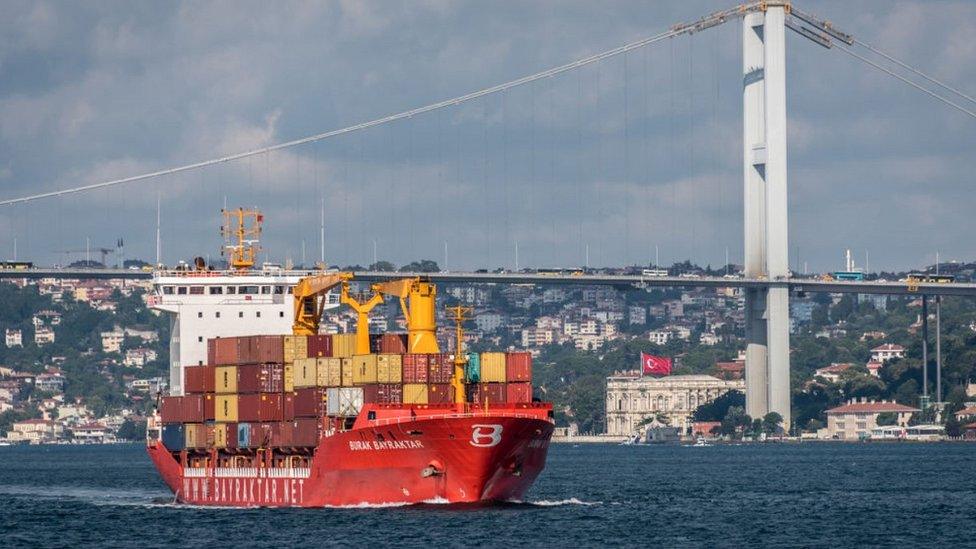
- Published17 July 2019
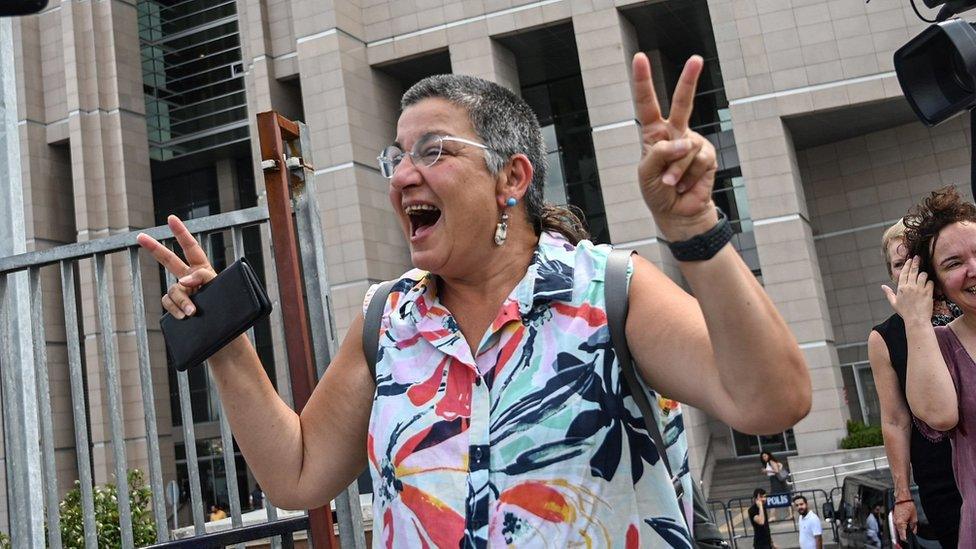
- Published4 April 2014
